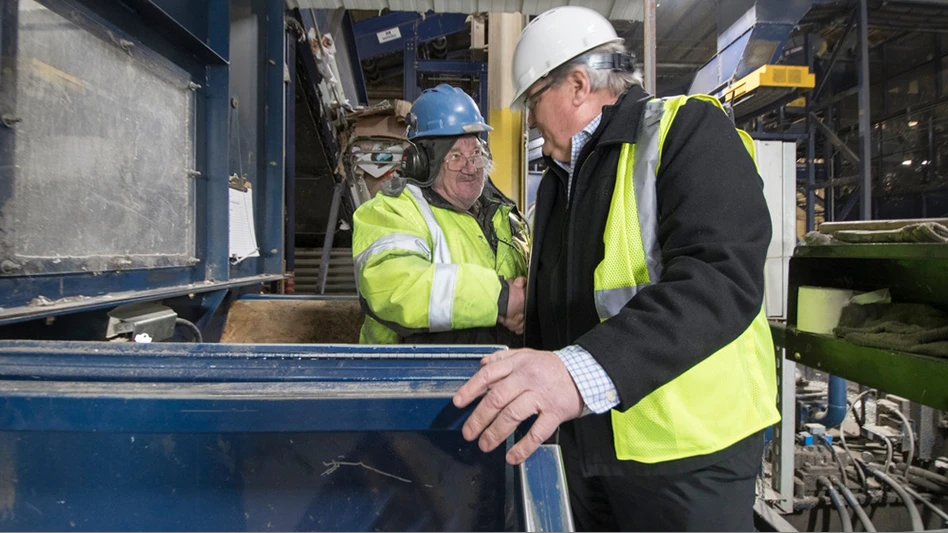
After working for over a year, Nestlé Waters, with U.S. headquarters Glendale, California, and Groupe E Greenwatt, Granges-Paccot, Switzerland, have inaugurated what they say is Switzerland’s largest agricultural biogas plant in Treize-Cantons, Switzerland.
The new biogas plant is located in the Treize-Cantons industrial park, next to the Henniez bottling plant. Financed, built and operated by Groupe E Greenwatt, the plant is designed to use 25,000 tons of agricultural fertilizer from 27 farms in the region every year; 3,800 tons of organic waste from the processes that produce Nespresso and Nescafé will also be used as a raw material to produce biogas. The plant will produce 4 million kilowatts per hour of electricity and 4.5 million kilowatts per hour of heat by burning the gas in a cogeneration engine. The heat will be consumed in the Nestlé Waters bottling plant, whose proportion of renewable energy is designed to exceed 50 percent. By replacing energy generated using fossil resources, the biogas plant avoids the emission of 1,750 tons of CO2 into the atmosphere every year.
The residual material left over at the end of the process is a high-quality fertilizer that is used by partner farms. Since the methane is extracted in the process to produce the gas, these digested effluents make hardly any smell when they are spread. They are designed to have a very high nutritive value, are better assimilated by plants that mineral fertilizers and meet the criteria of all the most common organic labels.
A new chapter in the ECO-Broye program
The Treize-Cantons biogas plant marks a new chapter in the ECO-Broye program launched by Nestlé Waters in 2009. Its aim is to stimulate and coordinate efforts to preserve the natural resources of Henniez and its region by involving farmers, authorities and key stakeholders in joint projects.
Nestlé’s commitment
Nestlé is following a strategy that aims to speed up its transition to sustainable development by 2020. As part of this strategy, the company is driving a range of important initiatives and has set group-wide objectives and entered numerous contracts.
Nestlé has made nine commitments in Switzerland in three areas, where it plans to implement its vision of sustainable development, underpinned by social responsibility:
- food and health
- the environment and sustainability
- society and the economy
In the environmental field, the company is aiming to cut the CO2 emissions from its production facilities in Switzerland by 50 percent between 2010 and 2020. It also intends to reduce water consumption in its production sites in Switzerland by 50 percent by the same deadline and aims to consume only 100 percent responsible supplies by 2020.
Latest from Waste Today
- Defunct electronics recycling companies ordered to pay $3M for hazardous waste violations in Ohio
- Tacoma, Washington, launches smart camera technology pilot
- Pride Disposal sees efficiency gains with Hydrotex BIO-XPL hydraulic fluid
- Techbros launches AI-integrated electronics processing facility
- Understanding interchange optimization
- Account Updater: Keeping customer credit cards always up-to-date
- Understanding credit card fees
- CDRA names new executive director





